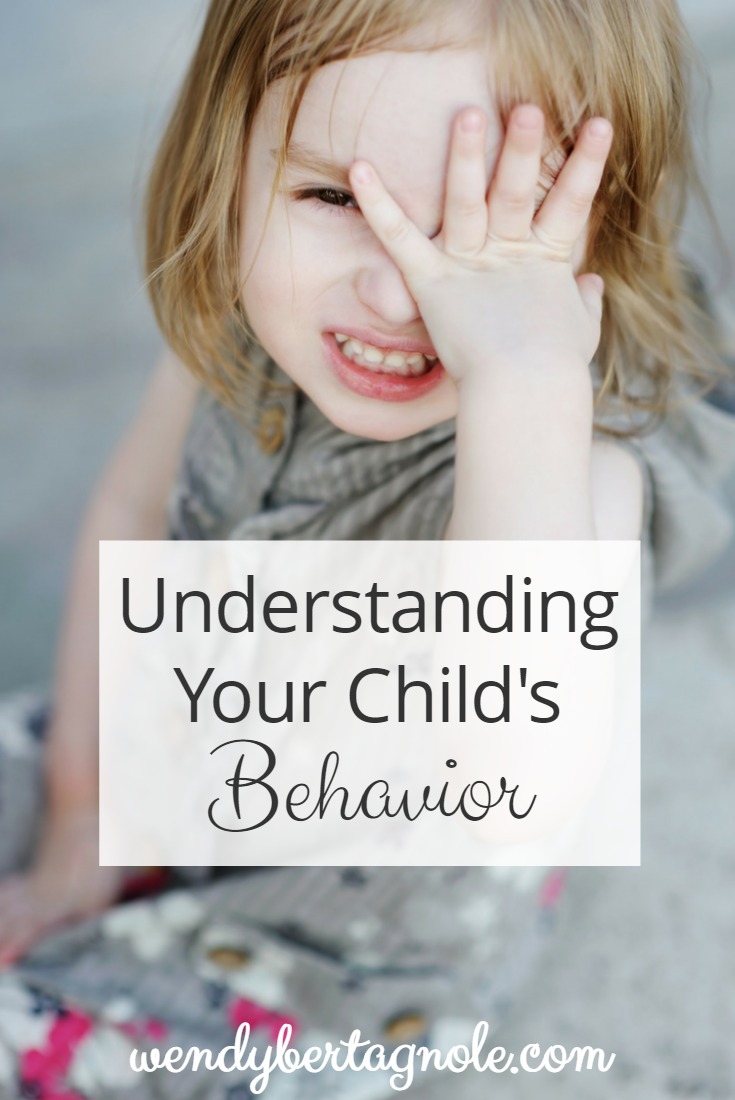Understanding Your Child’s Behavior
There are days when the whining, screaming, and yelling makes me sit back and wonder WHY?!
Where did I go wrong?
What did I do to create this kind of childhood for my kids?
How can I fix all this?
As parents our first instincts are to blame ourselves for our children’s behaviors. In doing so we feel ashamed, frustrated, guilty, or just mad that they behave in these ways.
I used to feel that way often. More often than not actually. Until I learned how to truly understand behavior. This post contains affiliate links.
Be sure to check out even more of my helpful parenting tips, too!

Behavior is Communication
All behavior is a form of communication. It is a simple statement, but so true.
When a child throws a tantrum, screams, whines, withdraws, or anything of that nature, he is communicating that he needs something.
We are taught when a child does this, they are asking for attention, bribes, or flattery. While those can be true, more often than not, the behavior has a much deeper root.
One that goes beyond those surface wants, and to deeper inner needs.
According to Dr Ross Greene, author of The Explosive Child, we address behavior with the wrong approach.
When addressing behavior, we do so with the mindset that “kids do well if they wanna.” Such approach leads to things that will “make the child want to be good.”
Tactics like timeouts, bribes, yelling, taking away privileges, are used and produce little results.
This is because, according to Dr Greene’s research, challenging behavior is best approached with the mindset that “kids do well when they can.”
The difference seems small, but the effect is huge.
Dr Greene suggests that most challenging behavior happens due to a lack of skill rather than a lack of desire to do well.
With that in mind, as parents and caregivers, our job is to then teach (and help practice) a skill.
All the punishing, bribing, pleading, and begging in the world was not working because your child simply lacked the skill to respond appropriately to the situation at hand.
What Is Being Communicated?
Assuming Dr Greene’s theory is true (which it is), what exactly is a child communicating through “behavior”?
The skills typically lacking in children are the following;
- Dealing with disappointment
- Problem solving
- Being flexible
- Regulating sensory system and emotions
- Communicating feelings
- Need for consistency and predictability
Do any of those sound familiar to you?
For me these were like a light bulb that went off and showed me why my kids were reacting the way they were.
It also showed me that I needed to change my approach to dealing with behaviors.
My punishment approaches of timeouts, threats, lectures, and even yelling sometimes were never effective because I never addressed the real cause of their behaviors.
Now when my child has a fit over something, I look past the screams and to something deeper.
Doing so helps me to address it all with a little more patience, and helps my child to not HAVE to have these behaviors as often.
It’s a win for everyone.
For more smart parenting insights:
The Whole-Brain Child: 12 Revolutionary Strategies to Nurture Your Child’s Developing Mind No-Drama Discipline: The Whole-Brain Way to Calm the Chaos and Nurture Your Child’s Developing Mind
No-Drama Discipline: The Whole-Brain Way to Calm the Chaos and Nurture Your Child’s Developing Mind Raising Good Humans: A Mindful Guide to Breaking the Cycle of Reactive Parenting and Raising Kind, Confident Kids
Raising Good Humans: A Mindful Guide to Breaking the Cycle of Reactive Parenting and Raising Kind, Confident Kids Good Inside: A Guide to Becoming the Parent You Want to Be
Good Inside: A Guide to Becoming the Parent You Want to Be
About the Guest Author
This post originally appeared on WendyBertagnole.com and is reprinted with permission.
With an undergraduate degree in child development, and a master’s degree in special education, this foundation was a springboard for Wendy in helping kids and families to see the root of any challenges they face.




